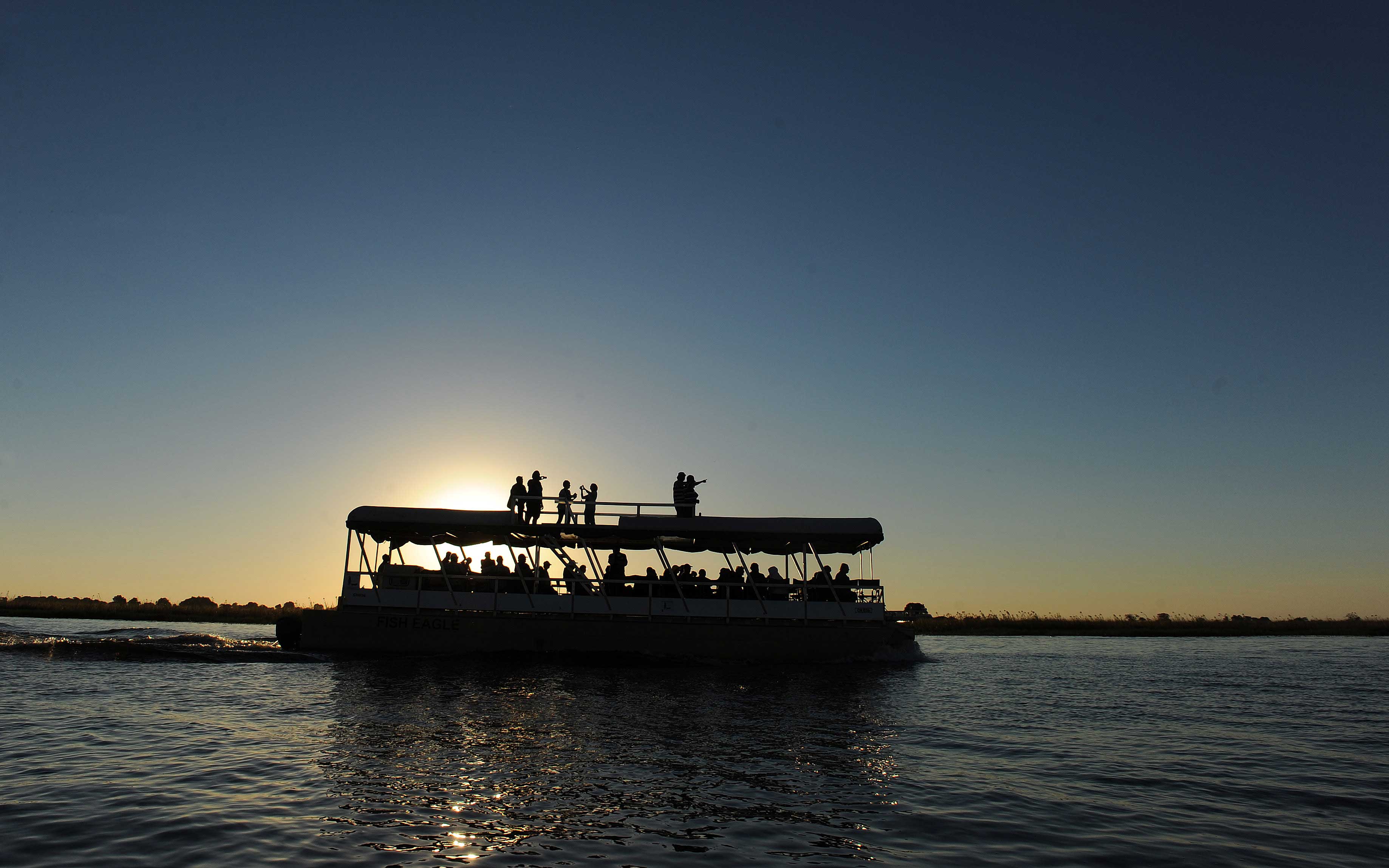- Over P10 billion made in revenue since 2010
- BURS paid only P256 million as tax
- Money gobbled up in expenses
GAZETTE REPORTER
Top-notch tourism company, Wilderness Holdings Limited has since 2018 made over P10 billion in revenue derived through operating lucrative tourism concessions here in Botswana, but the money trail shows hundreds of millions were gobbled up in expenses, a little was declared as taxable income to the Botswana Unified Revenue Service (BURS) which ended up benefitting just P256 million as taxation since 2010.
The company was for the past years synonymous with former President Ian Khama’s family who did business with Wilderness through Linyanti Concession. It is believed that Khama’s younger brother Tshekedi was appointed Minister of Tourism to ‘take care’ of the family’s interests in the sector, which is why Wilderness benefitted from lucrative concessions which earned it big bucks, although only a small portion of the earned money was declared for taxing.
Less than a year back, government, (under Tshekedi) renewed, without tender three leases for premium concessions, Mombo, Little Mombo and Xigera. Wilderness was also tipped that Vumbura Plains and Little Vumbura will also be renewed, without a tendering process.
These are the concessions which raked in billions of Pula for the eco-tourism company, with connections to the Khama family. For the financial year ending February 2010, two years after Ian was President, Wilderness made P871 million in revenue. From that figure almost all the money financed ‘operational costs’ while only P88 million was declared to Botswana Unified Revenue Service (BURS) as taxable profit. P36.6 million was then paid out as tax to BURS. The next reporting period for the year ending February 2011, P948.6 was made as revenue, most of it was swallowed by the ‘cost of sales’ and P111 million was declared to BURS of which the taxman only benefitted P18 million.
Through the utilization of the lucrative concessions, revenue made by Wilderness grew significantly in 2012. For the year ending February 2012, the company made just over P1 billion in revenue. An assortment of costs gobbled up all the money to a point where only P16 million was declared to BURS as profit before tax. From that taxable income, the BURS only benefitted P7 million.
In the meantime, money made by Wilderness as revenue was on the rise, as well as ‘operational expenses’ as shown in the company financial statements. By the February 2013 fiscal period, revenue was over P1.2 billion, only P32 million was declared for the taxman to get his cut. BURS only left with just P4.8 million. In the 2014 reporting period, P843 million was made as revenue, but BURS benefitted only P29 million as tax, after P77 million was declared.
The trend continued into 2015. For the reporting period ending February 2015 a total of P944 million was made as revenue, but P108 was declared and BURS benefitted only P32.4 million.
In 2016 over P935 million was made in turnover. Only P120 million was declared to BURS which ended up benefitting just P46.2 million. Further, Wilderness made a whopping P1.1 billion in revenue by the February 2017 financial year. Like always, cost of sales and operational expenses gobbled all the money. Wilderness declared only P101 million as taxable income. BURS then took only P38.6 million.
Further, Wilderness made revenue worth P1.2 billion in the 2018 reporting period. P114 million was declared for taxation at the BURS. The taxman took only P27.5 million.
While billions were made as revenue, profits paid out to shareholders as dividends were not as enticing. Profit growth between 2010 and 2018, rose from P48 million in 2010 to P87.3 million.
Consequently, Wilderness, from a time when its associate, former President Ian Khama was in power, the company has made over P525 million as profit while revenue was over P9.6 billion, through the lucrative concessions.
The costs of sales and expenses collectively gobbled up 90 percent of its earnings since 2010. The trend is similar in all the years. 90 percent of Wilderness revenue is accounted for as costs and expenses, but the company never specifies what kind of costs, specifically gobbles up all revenue.
Tax and finance experts believe that such a practice falls under transfer pricing. Such corporates are believed to be shipping out money using three channels; commercial tax evasion, trade misinvoicing and abusive transfer pricing, in which the corporates bulk up most of its money on operational expenses (most of which is paid to the parent company), deliberately so as to declare a smaller profit. Experts believe transfer pricing may be manipulated to shift profits from one jurisdiction to another, usually from a higher tax to a lower jurisdiction.
Insiders say most of these are ‘manufactured’ operational expenses immediately at income level, which means that the foreign holding companies get this huge pay way before Botswana unified Revenue Service (BURS) get its cut, thus dramatically dwindling a sum that will be declared as Profit Before Tax (PBT). In December 2016, Botswana Gazzete wrote that the Wilderness Group, through one of its subsidiaries Wildeness Tours Limited moved millions of Pula to its Bermuda based Wilderness Safaris Limited Bermuda (registered as company No. EC20720), in a transaction labelled ‘loan’ which was interest free with no repayment terms.
Bermuda was Wilderness’s overall holding company before restructuring. It now operates as is self-insurance fund, where the group stashes cash for future use. Wilderness has since been bought and is controlled 34 percent by The Rise Fund, which is registered in Mauritius, a known tax haven believed to be ranked amongst top 15 of the world’s worst tax havens.




